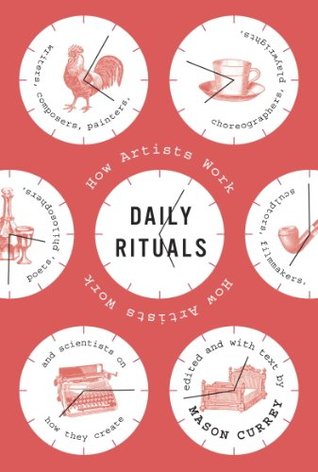More on this book
Community
Kindle Notes & Highlights
These simple acts make man simple; and how difficult it is to be simple!”
“I write when the spirit moves me,” Faulkner said, “and the spirit moves me every day.”
Jonathan Edwards (1703–1758) The eighteenth-century preacher and theologian—a key figure in the Great Awakening and the author of the sermon “Sinners in the Hands of an Angry God”—spent thirteen hours a day in his study, beginning at 4:00 or 5:00 in the morning. (He noted in his diary, “I think Christ has recommended rising early in the morning, by his rising from the grave very early.”)
“One has to give something of one’s self to the devil that one may live,” he said. “I give my criticism.”
Edith Sitwell (1887–1964) Literary legend has it that Sitwell used to lie in an open coffin for a while before she began her day’s work; this foretaste of the grave was supposed to inspire her macabre fiction and poetry. The tale is probably false.
if things did not go too well, if he felt uncertain of his ideas and unhappy with his drawings, then Corbu became jittery. He would fumble with his wristwatch—a small, oddly feminine contraption, far too small for his big paw—and finally say, grudgingly, “C’est difficile, l’architecture,” toss the pencil or charcoal stub on the drawing, and slink out, as if ashamed to abandon the project and me—and us—in a predicament.
There’s no one way—there’s too much drivel about this subject. You’re who you are, not Fitzgerald or Thomas Wolfe. You write by sitting down and writing. There’s no particular time or place—you suit yourself, your nature. How one works, assuming he’s disciplined, doesn’t matter. If he or she is not disciplined, no sympathetic magic will help. The trick is to make time—not steal it—and produce the fiction. If the stories come, you get them written, you’re on the right track. Eventually everyone learns his or her own best way. The real mystery to crack is you.


